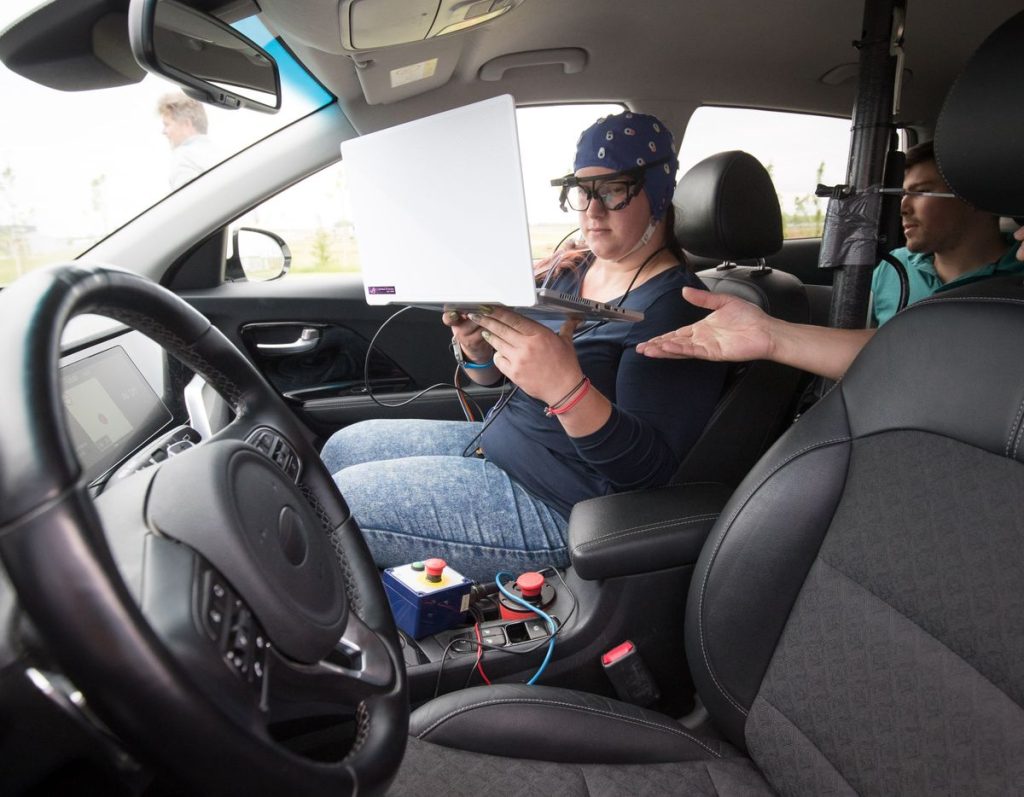With the involvement of 45 volunteers, scientific surveys were carried out on the test track, where researchers measured the emotional and biological reactions of the passengers sitting in self-driving vehicles in different traffic situations, such as accelerating and decelerating, avoiding a deer or a cyclist. During the measurements, experts used special instruments, head-mounted electrodes, and eye cameras to examine the subjects’ brain activity and eye movements, as well as galvanic skin reaction and heart rate monitors. Psychological tests were completed on both the state before and during the trip.
The two-day investigation was carried out in the framework of the cooperation of ZalaZONE Automotive Proving Ground, the University of Szeged, and the Budapest University of Technology and Economics. In 2022, the research also won the Innovation Award of the University of Szeged.
The field of autonomous transportation is rapidly advancing; however, there are still concerns about the general public’s acceptance of semi or fully autonomous cars.
Congratulations to our colleagues of Szeged on their research being recognized and publicized by @Nature Scientific Reports.
The publication on the topic is available here:

